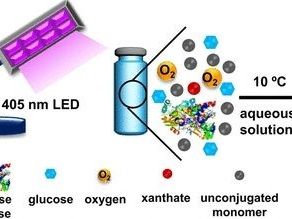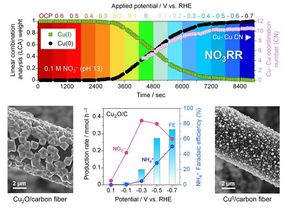Carnegie Mellon's Krzysztof Matyjaszewski wins Dreyfus Prize
Advertisement
Krzysztof Matyjaszewski, the J.C. Warner University Professor of Natural Sciences at Carnegie Mellon University, has won the 2015 Dreyfus Prize in the Chemical Sciences.
The international prize awarded by the Camille and Henry Dreyfus Foundation is given every two years to recognize accomplishments in different areas of chemistry. This year's prize, which consists of $250,000, a medal and a citation, is being presented for excellence in "Making Molecules and Materials." Matyjaszewski will receive the award at a ceremony and lecture held at the university's Pittsburgh campus in the fall.
"Krzysztof Matyjaszewski's work in polymer chemistry follows in the tradition of Camille and Henry Dreyfus, who were major innovators in their day in making polymer materials. We are proud to recognize his immense accomplishments with the Dreyfus Prize," said Henry C. Walter, president of the Dreyfus Foundation.
Matyjaszewski is best known for developing atom transfer radical polymerization (ATRP), a process cited by the Dreyfus Foundation as being the most important advance in polymer synthesis in half a century.
Matyjaszewski is best known for developing atom transfer radical polymerization (ATRP), a process cited by the Dreyfus Foundation as being the most important advance in polymer synthesis in half a century. ATRP allows scientist to precisely control the size and architecture of polymers, which has paved the way for the creation of thousands of new materials, including coatings, adhesives and sealants, and smart materials being investigated for use in the industrial, environmental and biomedical fields.
Matyjaszewski has played a critical role in bringing ATRP to industry for commercial use. Through his ATRP Consortia, he has taught representatives from more than 50 multinational corporations how to incorporate ATRP into the development of new products. As a result, products created using ATRP have a commercial value estimated at more than $20 billion.
"I feel very honored and flattered to receive the Dreyfus Prize for making molecules and materials. This recognition addresses not only contributions of my students and collaborators but also all polymer chemists working in the area of macromolecular materials with controlled architecture and functionality for targeted applications," Matyjaszewski said.
Born in Poland, Matyjaszewski received his doctorate from the Polish Academy of Sciences in 1976 and completed a postdoctoral fellowship at the University of Florida in 1977. From 1978 until 1984 he was a research associate at the Polish Academy of Sciences. After spending a year at the University of Paris, Matyjaszewski came to Carnegie Mellon in 1985, and remains an active faculty member. While at Carnegie Mellon, Matyjaszewski founded the Center for Macromolecular Engineering, served as head of the Department of Chemistry from 1994 to 1998, and was named a University Professor in 2004. The title of University Professor is the highest distinction a faculty member can achieve at Carnegie Mellon.
Other news from the department science
Most read news
More news from our other portals
See the theme worlds for related content
Topic world Synthesis
Chemical synthesis is at the heart of modern chemistry and enables the targeted production of molecules with specific properties. By combining starting materials in defined reaction conditions, chemists can create a wide range of compounds, from simple molecules to complex active ingredients.

Topic world Synthesis
Chemical synthesis is at the heart of modern chemistry and enables the targeted production of molecules with specific properties. By combining starting materials in defined reaction conditions, chemists can create a wide range of compounds, from simple molecules to complex active ingredients.




























































